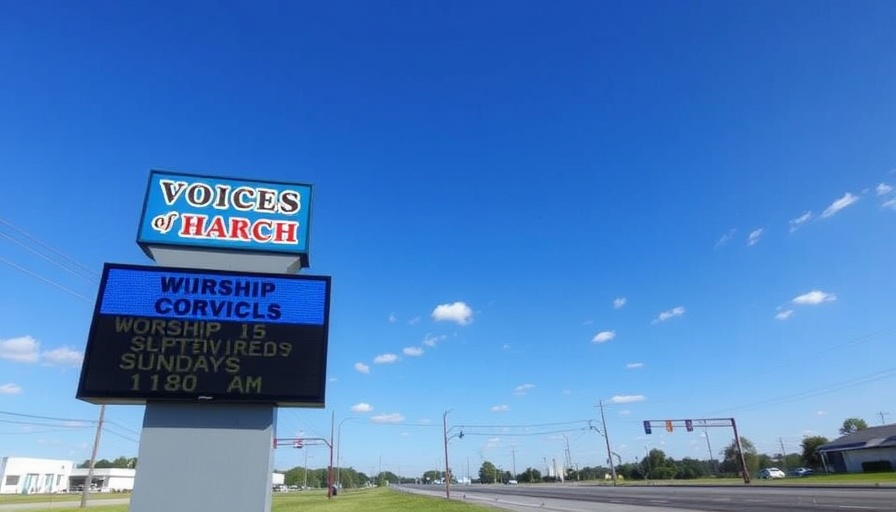
The Implications of a Military Parade in Washington, D.C.
When President Trump announced plans for a military parade in Washington, D.C., the nation was divided on its significance. For some, it was seen as a demonstration of national strength and pride, while others expressed concern over potential costs and the implications of displaying military might on home soil. Georgia Rep. Floyd Griffin, among other leaders, was quick to weigh in, emphasizing the need for thoughtful discourse regarding such public displays.
Understanding the Community Response
The military parade can evoke strong emotions across various communities, particularly in a diverse society like Georgia's. Rep. Griffin's statement reflects broader sentiments among constituents who feel that national issues should connect with local concerns and values. While military parades may appear grand and patriotic, they also raise questions about how such events resonate with everyday citizens, particularly those who have experienced the consequences of war.
Historical Context: The Role of Military Parades
Historically, military parades have been staged to celebrate victories and commemorate sacrifices. These spectacles can be exhilarating for many, but they can also stir uncomfortable memories for veterans and military families who have faced loss. Rep. Griffin's remarks highlight this duality, suggesting that any celebration should also incorporate a solemn recognition of those who have served and suffered.
Exploring Diverse Perspectives on National Patriotism
The question of patriotism is complex and can vary widely from person to person. Griffin pointed out the importance of engaging in dialogue around what it truly means to love one’s country. Does it mean glorifying military might, or honoring peace and community? This paradox prompts reflection on how patriotism can be expressed in ways that unify rather than divide, with emphasis on shared values and the common good.
Future Insights: Navigating Military and Civilian Interactions
Looking to the future, the challenge lies in fostering a relationship between military institutions and civilian communities in Atlanta and beyond. Understanding the context of military parades and their implications is vital for both lawmakers like Griffin and local citizens. Open conversations about such events can lead to innovative ways to celebrate national pride that also honor the sacrifices of veterans and their families.
Practical Takes: Encouraging Local Dialogue
As we digest the announcement of a military parade, it’s critical for residents, particularly in Atlanta, to engage in community discussions. Local leaders and citizens must work together to ensure that public demonstrations reflect the populace's values. By inviting diverse voices into the conversation, we can enrich the narrative of patriotism to better serve our shared identities.
Emotional Resonance: Connecting Through Shared Experiences
For many, military parades evoke personal stories—tales of loved ones deployed, friends lost, or moments of pride standing in uniform. This emotional connection underlines Rep. Griffin’s stance: that any display of military strength should also celebrate the resilience and courage of the community that supports its armed forces.
Final Reflections: What Should We Take Away?
As discussions continue regarding the military parade, Atlanta residents are encouraged to reflect on their values as a community. This is an opportunity not only to showcase pride but also to foster respect and empathy for diverse experiences. By understanding different viewpoints and embracing dialogue, the community can ensure a balanced representation of patriotism that aligns with the heart of Atlanta.
 Add Row
Add Row  Add
Add 




 Add Row
Add Row  Add
Add 

Write A Comment